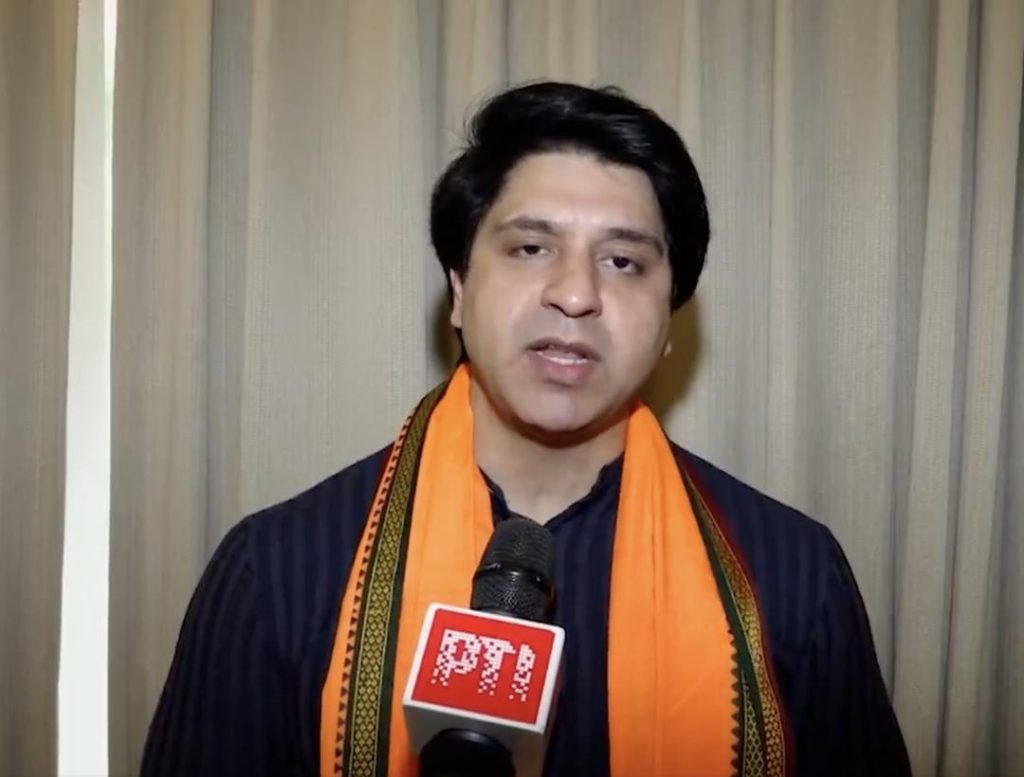
Alliance is Natural: BJP on AIMIM Seeking to Join Mahagathbandhan
The political landscape of Bihar is set to witness a new development as the All India Majlis-e-Ittehadul Muslimeen (AIMIM) has expressed its interest in joining the Mahagathbandhan, a grand alliance of opposition parties in the state. This move has not gone unnoticed, and the Bharatiya Janata Party (BJP) has reacted sharply to it.
Reacting to AIMIM’s bid to join the Mahagathbandhan, BJP’s Shehzad Poonawalla said that AIMIM, RJD, and Congress have a “natural alliance” as all three follow an “appeasement-first policy”. Poonawalla’s remark is significant, as it highlights the ideological affinity between these parties.
It is well-known that AIMIM, led by Asaduddin Owaisi, has been vocal about its commitment to minority-centric politics. The party’s primary focus has been on representing the interests of Muslims, and it has been successful in winning several seats in the recent past. Similarly, the Rashtriya Janata Dal (RJD) and the Congress Party have also been accused of prioritizing appeasement politics.
The BJP’s assertion that AIMIM, RJD, and Congress have a natural alliance is not entirely unfounded. All three parties have been critical of the BJP’s alleged communal bias and have accused it of neglecting the interests of minority communities. AIMIM, in particular, has been vocal about its opposition to the BJP’s Hindutva agenda and has accused it of being anti-Muslim.
Poonawalla’s comment about the natural alliance between AIMIM, RJD, and Congress is also supported by their past electoral performance. In the 2019 general elections, AIMIM won several seats in Telangana, while the RJD and Congress secured significant victories in Bihar and other states. The three parties have also collaborated with each other on various occasions, sharing a common goal of challenging the BJP’s dominance.
However, Poonawalla’s statement has also been criticized for being divisive and communal. Many have argued that the BJP’s attempt to portray AIMIM, RJD, and Congress as being united in their appeasement politics is a tactic to polarize voters along communal lines. The BJP has been accused of using similar tactics in the past, and this latest attempt is seen as a desperate attempt to distract from its own failures in governance.
Another important point to consider is the Congress Party’s past ties with AIMIM. In the past, AIMIM has been a part of the United Progressive Alliance (UPA) government, and the Congress Party has had a cordial relationship with the party. Poonawalla’s statement that Congress shouldn’t call AIMIM the BJP’s B-team is significant, as it highlights the Congress Party’s own complicity in promoting minority-centric politics.
The BJP’s statement is also significant in the context of the upcoming Bihar Assembly polls. The polls are expected to be held later this year, and the outcome is seen as crucial for the BJP’s prospects in the state. The party has been seeking to establish itself as a credible alternative to the Mahagathbandhan, and its statement on AIMIM’s bid to join the alliance is seen as an attempt to damage the opposition’s unity.
In conclusion, the BJP’s statement on AIMIM’s bid to join the Mahagathbandhan highlights the deepening divisions in Indian politics. The BJP’s attempt to portray AIMIM, RJD, and Congress as being united in their appeasement politics is a tactic to polarize voters along communal lines. However, the Congress Party’s past ties with AIMIM and its own complicity in promoting minority-centric politics make it difficult to dismiss the BJP’s assertion entirely.
As the Bihar Assembly polls approach, it is essential to focus on issues that affect the common people, rather than engaging in divisive rhetoric. The BJP’s statement on AIMIM’s bid to join the Mahagathbandhan is a reminder that Indian politics is becoming increasingly polarized, and it is up to the leaders to ensure that the debate remains constructive and issue-based.






